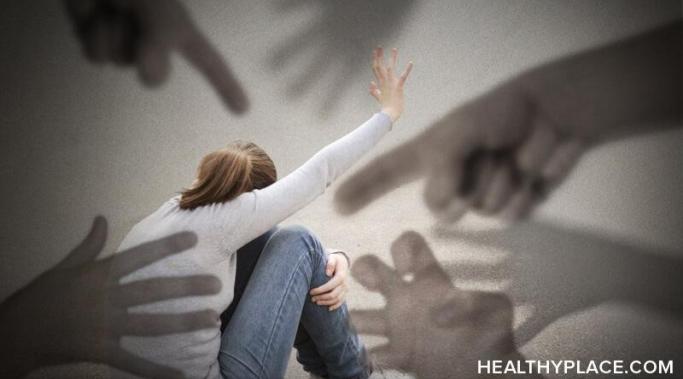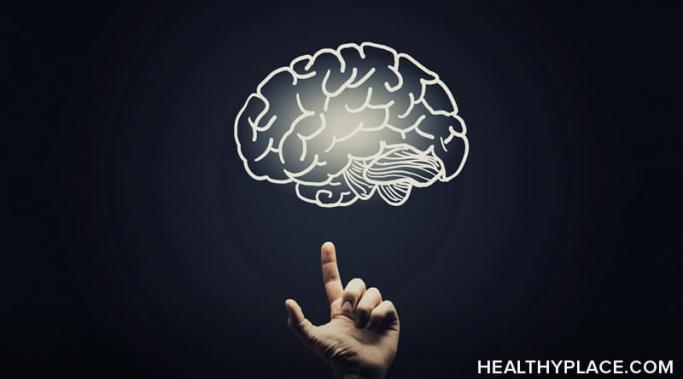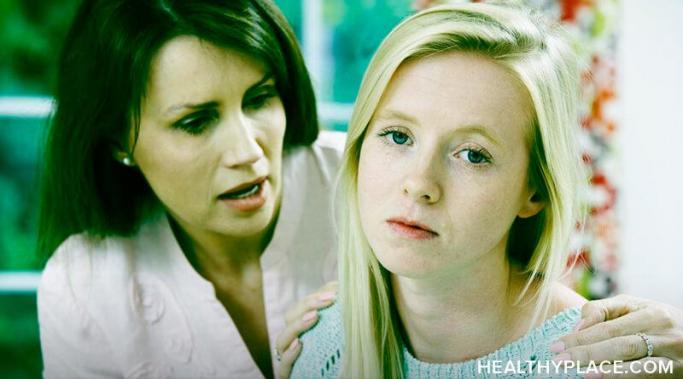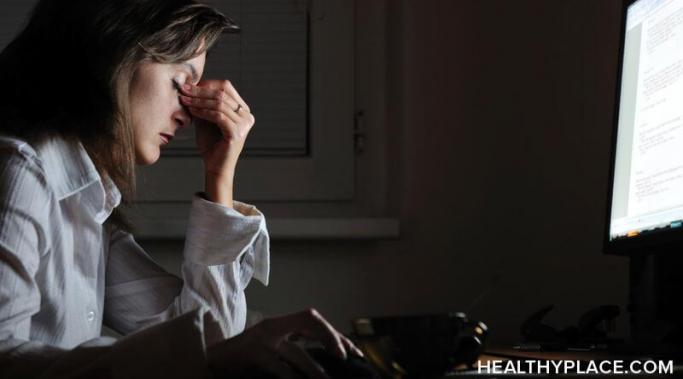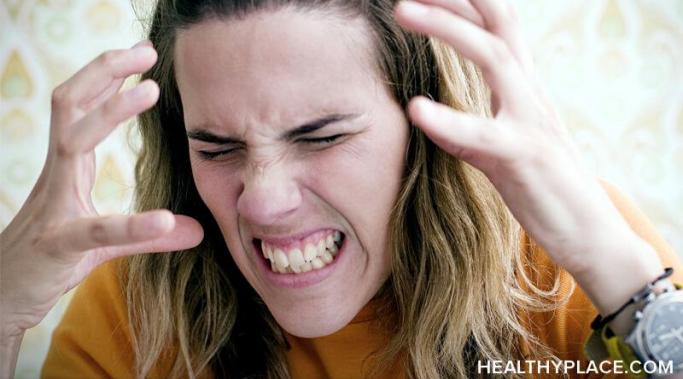I've recently, painfully, discovered that stress increases anxiety to interminable levels. Stress, of course, worsens one's mental health in many ways, but the way that I'm primarily feeling it is through anxiety (and probably depression; anxiety and depression being knitted together as they are). Previously, I didn't have the anxiety problems I do today, and I didn't realize just how bad anxiety could feel until this latest bought of stress increasing my anxiety.
Breaking Bipolar
I recently realized there is a safety to wanting nothing. In spite of the fact that wanting nothing in and of itself is horrible, that safety can actually feel comfortable -- especially after a long time.
"He's totally psychotic." "My breakup was totally psycho." How many times have you heard those types of phrases? I've heard it many, many times. While it's pretty common these days to have some knowledge about mental illness terms, psycho, psychotic, and even psychosis tend not to be understood. Let's delve into the meanings of psycho, psychotic, and psychosis, both from a common vernacular point of view and from an accuracy point of view.
I suspect all of us have heard someone say, "No one will love you until you love yourself." It's one of those quaint pieces of advice that people give so often that it shines with the veneer of truth. But I'm here to tell you it isn't true and, in fact, it's cruel to tell people that. I'm aware that people are trying to help, but "no one will ever love you until you love yourself" does just the opposite.
Bipolar can bring thoughts to your brain that are so negative and destructive, they can seem impossible to deal with, but you can work to reframe bipolar thoughts to fight back. Reframing thoughts won't fix the issue, per se, but can allow you to stand up for yourself against the bipolar disorder. This is incredibly important. Learn more about reframing bipolar thoughts here.
From what I can tell, bipolar and sleep are intimately related -- bad sleep and bipolar are linked too. In my experience\, bad sleep equals bad bipolar. But it also seems to be the case that bad bipolar equals bad sleep. So, which came first? How do you treat bad sleep and bad bipolar?
Do you suffer from an inner voice that tells you others are thinking you're ugly, an idiot, or just plain crazy? You might try combatting that by trying to get over yourself. I know this sounds a bit harsh, and admittedly, I've been known to be overly harsh with myself, but I think there's something to this. Let me explain what I mean when I say, "Get over yourself."
I'm experiencing a profound depression right now, and I can tell you that I don't care about anything. I was thinking about how little I care. Good things have happened. Bad things have happened. But I don't care. Nothing touches me enough for me to actually care about it. Depression has definitely convinced me that I don't care about people, places, things, and everything in between.
Overdoing it with bipolar is not mentally healthy. Overdoing it is something people are encouraged to do regularly. The 9:00 a.m.-5:00 p.m. workday is a laugh for many people as work follows them, via cell phone, home, to the gym, and to the park with the kids. And then there's cooking, cleaning, friends, obligations, hobbies, and more with which to contend. And that doesn't even take into account "side gigs," which, for some reason, we're all supposed to have now. And while some people can handle a go-go-go lifestyle, people with a serious mental illness certainly cannot. When you have bipolar disorder, overdoing it comes with a very hefty price.
Mental illness puts thoughts in your head. The fact that mental illness puts thoughts in your head is pretty much the definition of most mental illnesses. If it wasn't for the unhealthy thoughts and feelings that we have, we wouldn't be sick. And just like everyone, we tend to judge our own thoughts and feelings -- even if they're illness-generated. Moreover, the judgment of our own thoughts and feelings often gets translated as a judgment of ourselves. For example, if we judge our thoughts and feelings as unacceptable, then we may feel that we are unacceptable. So, let's take a look at mental illness putting thoughts in our head and how we judge those thoughts.


